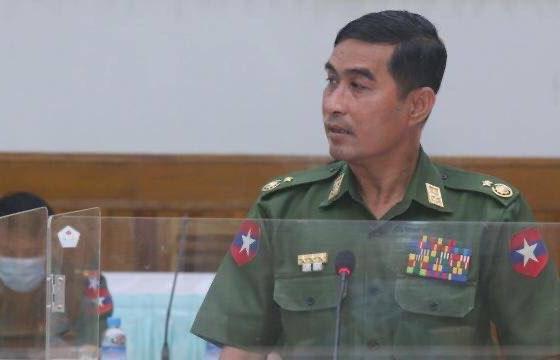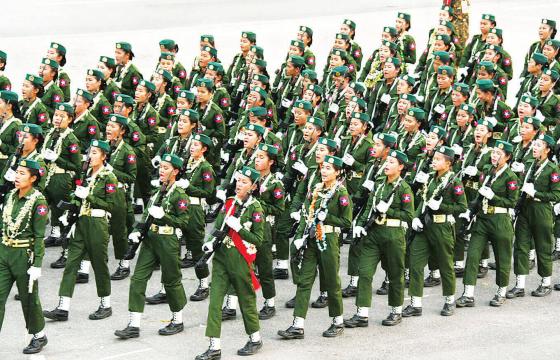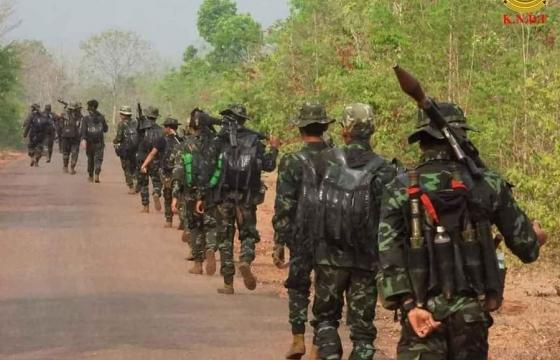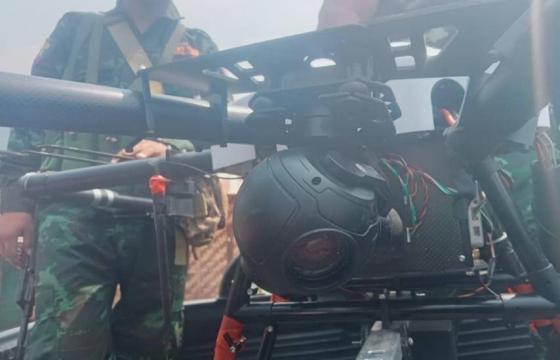commander-in-chief general Min Aung Hlaing’s Twitter account was taken out, due to the lobbying of Maung Tun Khin, a well known Rohingya leader and activist based in the UK, it seems his capacity to make use of social media has been completely decapitated.
Reportedly, the general was accused of masterminding genocide against the country’s Muslim Rohingya people and subsequently has had his Twitter account suspended, following Tun Khin’s complaint that he used social media platform for promoting hate speech.
Tun Khin said: “The fact that Twitter has joined Facebook in deleting his account – which he used to sow hatred and spew out his defensive propaganda – is a massive victory for the Rohingya people,” according to The Guardian’s report of May 16.
Earlier in August 2018, his Facebook account was also shut down after the United Nations called for Myanmar military (a.k.a. Tatmadaw) leaders to be prosecuted for genocide. He denied the Tatmadaw atrocities and claimed that the military was targeting militants rather than committing genocide. In 2017, 700,000 Rohingya were dispelled from their homes to Bangladesh and various human rights violations were committed, according to the media and UN, including the international rights groups.
In addition he routinely refer to Rohingya people as “Bengali”, which he also used the social media to propagate the stance, implying that they were immigrants rather than citizens of Myanmar.
Besides, in September 2018, an account with the same user name, Sen-Gen Min Aung Hlaing, appeared on Russian social media platform VKontakte (VK), but a couple of weeks later it was also banned. However, it was blocked almost immediately as visitors to the site were greeted by a short message that said “This page has been blocked due to violation of the VK terms of service” but provided no further explanation, according to the two reports in The Irrawaddy.
However, brigadier-general Zaw Min Tun of Tatmadaw true news information denied that the Twitter and VK belonged to the commander-in-chief, although his Facebook usage was confirmed.
The suspensions seemed to have created a kind of shock effect in the beginning for the commander-in-chief and his followers but later it become business as usual, as other channels like radio and TV available to the Tatmadaw are used widely and distributing them in form of audio and video podcasts again on the Facebook, and to a lesser extent on the Twitter. And as such, the effective usage of social media connection becomes an even more better communication tool, although a bit less than the situation when all social media platforms were not suspended.
In the same vein, the Ethnic Armed Organizations (EAOs) also met the same faith, when the Northern Alliance-Burma’s (NA-B) Facebook, including its four members’ Facebook were closed down giving the reason of being dangerous organizations.
On February 5, Facebook Newsroom reported its decision as: “In an effort to prevent and disrupt offline harm, we do not allow organizations or individuals that proclaim a violent mission or engage in violence to have a presence on Facebook. This includes terrorist activity, organized hate, mass or serial murder, human trafficking, organized violence or criminal activity.”
It added: “There is clear evidence that these organizations have been responsible for attacks against civilians and have engaged in violence in Myanmar, and we want to prevent them from using our services to further inflame tensions on the ground.”
“Today, we are taking more action, designating four more groups in Myanmar as dangerous organizations – the Arakan Army (AA), the Myanmar National Democratic Alliance Army (MNDAA), Kachin Independence Army (KIA) and the Ta’ang National Liberation Army (TNLA). These armed groups are now banned from Facebook and all related praise, support and representation will be removed as soon as we become aware of it,” wrote the Facebook Newsroom.
However, Facebook’s quandary in Myanmar also raises profound questions about the ways the platform chooses to regulate – and declines to regulate – violent actors using its platform, wrote The Guardian in its February 7 report.
It argued that while there is no real dispute that Myanmar’s military has committed violent atrocities in Myanmar and Facebook has punished leaders of the military, it has not designated it a “dangerous organization” that cannot be praised or supported. In contrast, the banned four EAOs are being labeled as “dangerous organizations”.
Matthew Smith of Fortify Rights, a Southeast Asian human rights organization raised serious questions when he asked: “The company’s statement says groups with a violent mission are banned,” adding, “Does that mean all armies would be banned? Or just non-state armies? There are dozens of non-state armed groups in Myanmar. Is the company planning to ban all of them? The company didn’t tell us exactly why these four groups were targeted while dozens of others were not.”
Accordingly, Facebook declined to clarify its thinking on state and non-state “dangerous organizations” on the record, but a spokeswoman acknowledged that they focus on non-state actors.
Whatever the case, Tatmadaw and the four banned EAOs are all on the same boat, albeit the former has a better placed position, where dissemination of news are concerned.
And like the Tatmadaw, the four EAOs too make use of various media outlets by posting tailor-cut news clips, audio and video podcasts on the Facebook, sometimes through sympathizers and at times using different names or even fake accounts.
The Facebook, far from being able to curtailed unwanted activities by suspension of the commander-in-chief, his hundreds of his affiliated and NA-B Facebook accounts, the propaganda war in cyberspace goes on unabated.
The information war on social media between the government-military and the EAOs is a sort of tit-for-tat kind of knee-jerk reaction. But it is not limited to it alone because it is also used in the inter-ethnic conflict arena, like in the TNLA and Restoration Council of Shan State (RCSS) conflict and as well the Shan-Shan conflict between the two Shan armies RCSS and the Shan State Progress Party (SSPP), although the latter case has died down for the moment, due to the ceasefire agreement brokered by the Shan people and the Sangha.
Regarding the EAOs and Tatmadaw making use of the Facebook many instances can be found in the conflict between the AA and Tatmadaw playing out intensively, with the TNLA and KIA conflict with the Tatmadaw following less intensively in the social media war.
On another facet, ethnic parliamentarians dissatisfaction and disagreement are routinely aired in the Facebook interviewed by various news outlets, which otherwise will go on unnoticed. The issues covered from various blockages of the ethnic MPs proposal to be discussed in the parliament by the house-speaker on issues beginning with ending the civil war; free access to the internally displaced persons which were not in government control territories; repealing draconian and outdated laws for freedom of expression; to clarification of government positions on historical documents like Panglong Agreement of 1947.
In short, the news distribution style has been altered by the social media emergence, as out of 51 million population some 20 million are using phones that have connection to the Facebook, as it is internet and search engine at the same time for the Burmese users, according to the researchers.
The use of social media in politics including Twitter, Facebook, and YouTube has dramatically changed the world over and the relationship of civilian-military government and the ethnic nationalities, armed and unarmed, is no exception. While the pros and cons of social media usage is disputable, the two crucial stakeholders need to dwell on the positive usage of the network. The positive approach as all know should be anchored in “altruism, federalism and unity in diversity”. Thus, all will benefit if the social media is used to promote such aspirations rather than for propaganda purpose of group survival, supremacy and sow hatred.







